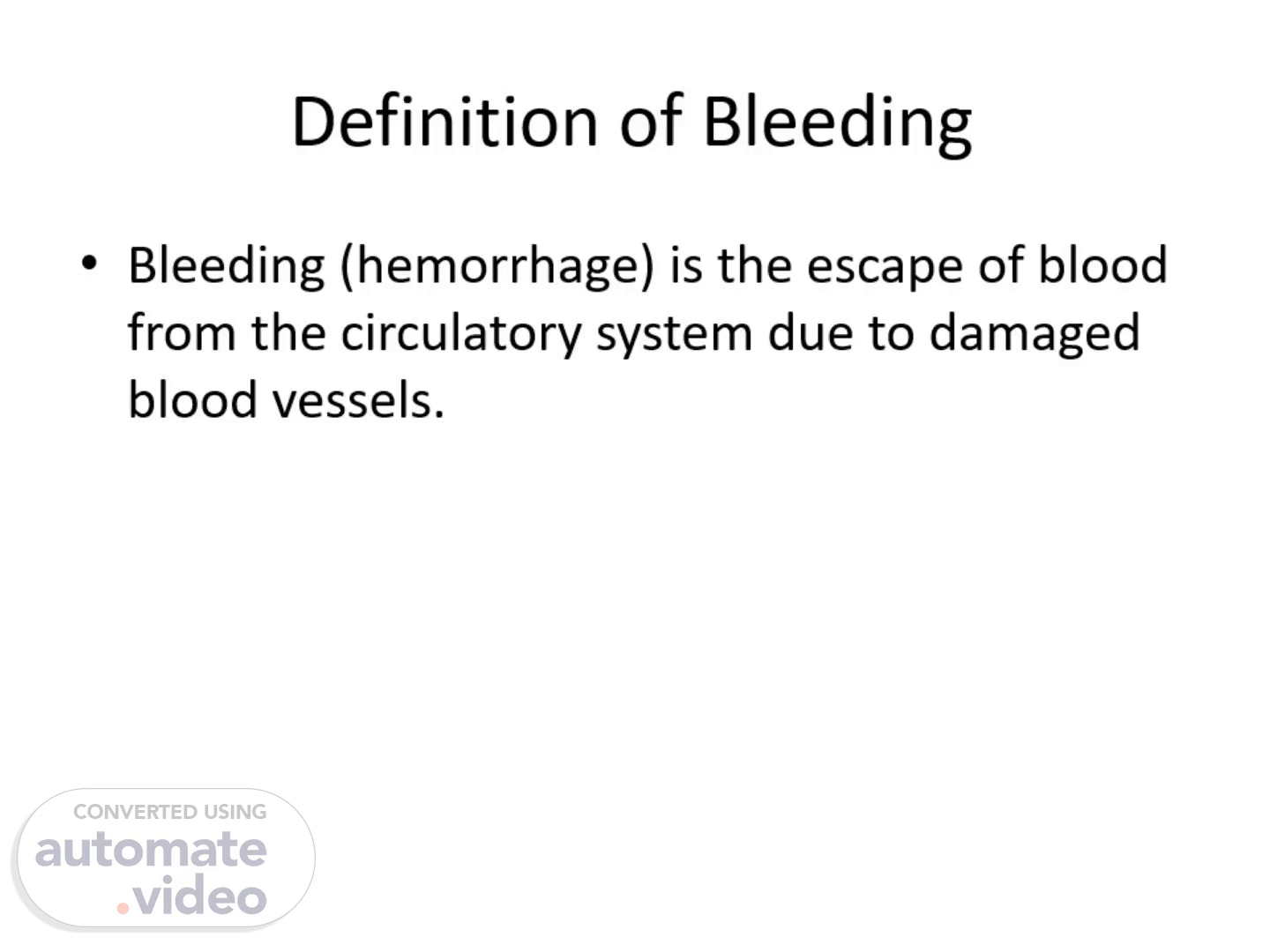Scene 1 (0s)
[Audio] the escape of blood from the circulatory system due to damaged blood vessels can occur internally, where blood leaks from blood vessels or organs inside the body externally, where blood flows through a break in the skin or a natural opening such as the mouth, nose, ear, or anus.
Scene 2 (21s)
[Audio] 1. Trauma Definition: Trauma refers to physical injuries that disrupt the integrity of blood vessels. Types of Injuries: Accidents: Car crashes, falls, or sports-related injuries can cause cuts, abrasions, or more severe injuries like fractures that may damage blood vessels. Penetrating Injuries: Stab wounds or gunshot wounds can lead to significant external or internal bleeding, depending on the location and severity of the injury. Impact: The severity of bleeding in trauma cases often depends on the size and location of the blood vessels involved, as well as the extent of the damage. 2. Medical Conditions Hemophilia: A genetic disorder that impairs the body's ability to make blood clots, which is essential for stopping bleeding. Individuals with hemophilia may experience spontaneous bleeding episodes or prolonged bleeding after injuries. Liver Disease: Conditions like cirrhosis or hepatitis can affect the liver's ability to produce clotting factors, leading to an increased risk of bleeding. The liver plays a crucial role in synthesizing proteins that help blood clot. Certain Cancers: Cancers such as leukemia can affect the blood's ability to clot by impacting platelet production or function. Tumors can also invade blood vessels, leading to bleeding either internally or externally. 3. Medications Blood Thinners (Anticoagulants): Medications like warfarin, rivaroxaban, and apixaban are prescribed to prevent blood clots in conditions such as atrial fibrillation or after surgery. While effective in reducing the risk of clots, they can also increase the risk of bleeding, especially if dosages are not properly managed. Antiplatelet Drugs: Medications like aspirin and clopidogrel inhibit platelet aggregation, which is essential for blood clot formation. While useful for preventing heart attacks and strokes, these medications can lead to increased bleeding risk. Impact of Overuse or Interactions: The use of multiple medications, including over-the-counter pain relievers, can further exacerbate bleeding risks. It's important for patients to manage their medications under the supervision of healthcare providers..
